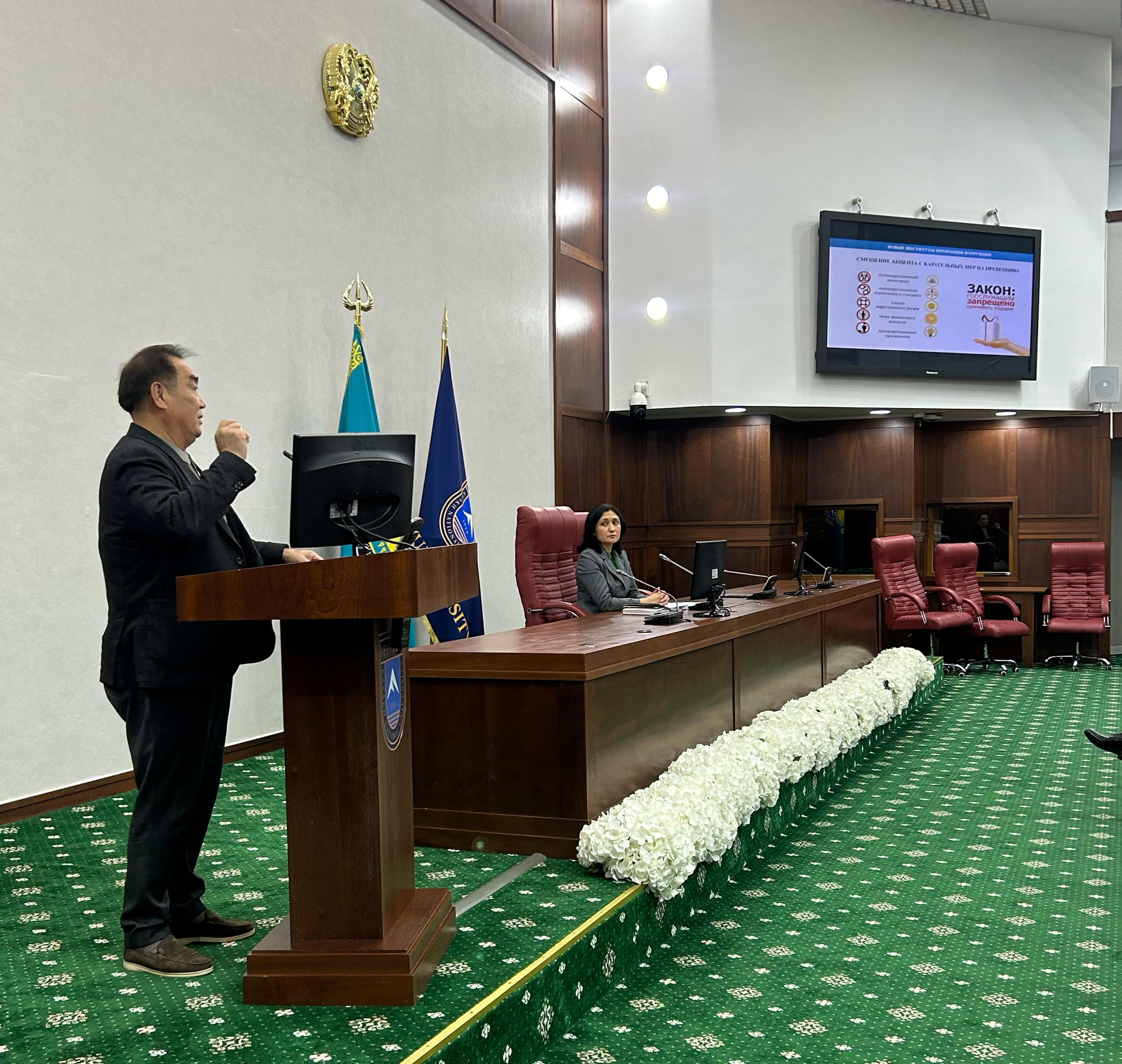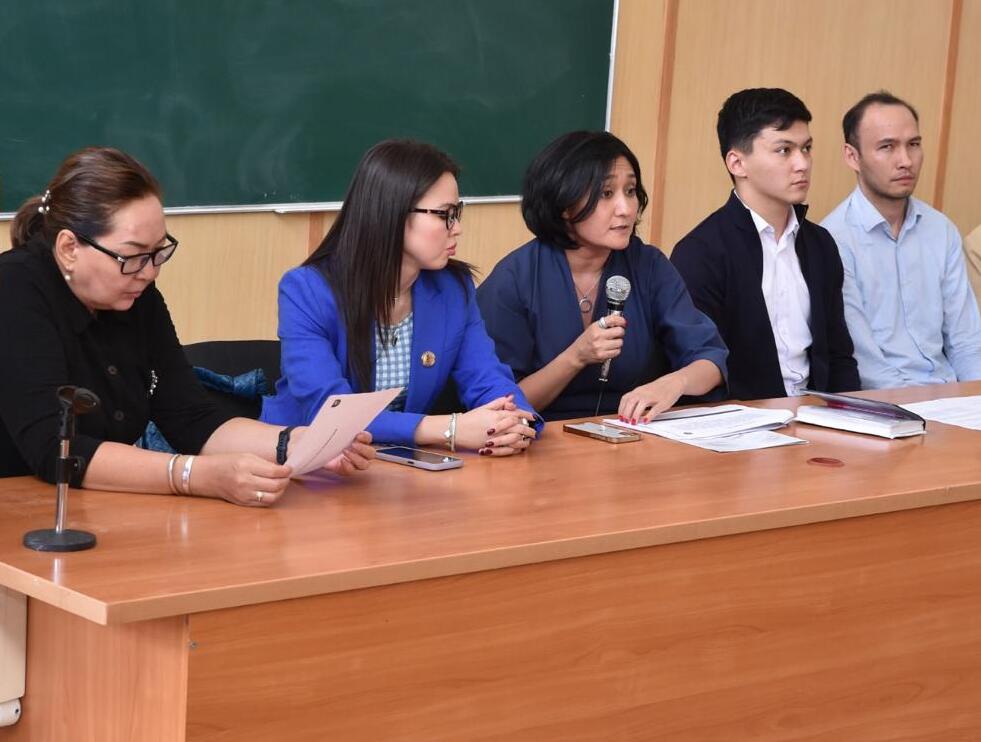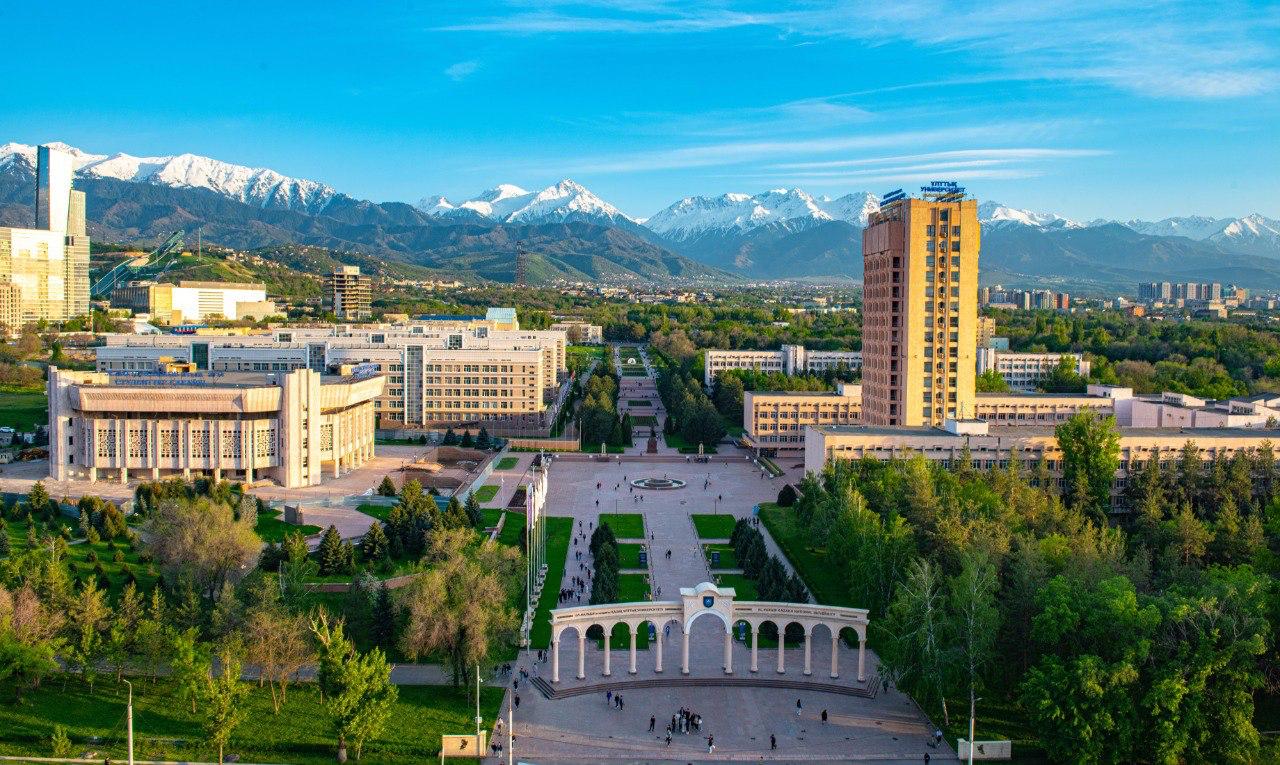Principles and Obligations in Combating Corruption

The fight against corruption is defined as one of the main priorities of the state policy of the Republic of Kazakhstan. Corruption hinders the process of socio-economic development, construction of a market economy, attraction of investments. It has a negative impact on the political and social institutions of a democratic state and poses a serious threat to the future development of the country.
In the modern world, work to strengthen the fight against corruption is ongoing and constantly improving. There is no unique set of anti-corruption mechanisms in the world that is optimal for all countries. The specificity of the sets of anti-corruption methods adopted by each country is unique and depends not only on political and economic stability, but also on the level of legal culture and social conditions.
The Law of the Republic of Kazakhstan “On Combating Corruption” provides the following definitions of corruption - it is the illegal use by persons holding responsible public office, persons authorized to perform public functions, persons equivalent to persons authorized to perform public functions, officials of their official (service) powers and related opportunities in order to obtain or extract, personally or through intermediaries, property (non-property) benefits and advantages for themselves.
The above-mentioned concept includes bribery, which is the most dangerous type of corruption offense. Its danger is due to the fact that it is often intertwined with the commission of other mercenary acts.
Kazakhstan's anti-corruption policy is constantly being improved based on the demands of society, taking into account national practices and best foreign practices.
Presidential Decree No. 802 of February 2, 2022, approved the Concept of Anti-Corruption Policy of the Republic of Kazakhstan for 2022-2026. The action plan for the implementation of the Concept envisages 6 tasks, where task 1 is defined as the formation of intolerance to corruption, namely changing values and increasing anti-corruption culture, increasing the integrity of the state apparatus, promoting the integrity of business.
Honesty, legality and pragmatism should become everyone's internal value beliefs. The society should not perceive corruption as a guarantor of simplified problem solving, combine friendly relations and protectionism with work. Corrupt officials should be subject to public censure. A fundamentally important role in forming a system of integrity is played by educating the younger generation with new attitudes and life principles that do not allow corruption.
It has been established that the fundamental success factor is the inculcation of anti-corruption values at all stages of personal development. Strengthening the immunity of young people against corruption, which will be facilitated by the implementation of international practices and initiatives to enhance the role of education, as well as their empowerment in the prevention of corruption.
Thus, the Anti-Corruption Policy Concept sets the goal of achieving absolute rejection of corruption by increasing anti-corruption culture, systematizing educational and training measures, motivating representatives of the state apparatus and the business community to behave with integrity and forming a new generation of citizens with strong social immunity from corruption.
At the present stage, in accordance with the Concept, along with the tools of academic integrity, the topics of integrity and anti-corruption culture have been introduced into the University's educational programs. Preparatory work is underway to implement the international (national) anti-corruption standard ISO 37001:2016.
The University has approved the Anti-Corruption Policy, which defines the goals, objectives and basic principles of anti-corruption.
The policy establishes the following basic principles of the work carried out:
-Priority of protection of human and citizen's rights, freedoms and legitimate interests. The University respects and provides full protection of human and civil rights and combats violation of these rights.
-Lawfulness and compliance of the Policy with the legislation of the Republic of Kazakhstan and international norms. The University strictly complies with the anti-corruption legislation of the Republic of Kazakhstan and other countries in which it conducts or plans to conduct activities, international treaties ratified by the Republic of Kazakhstan.
-Zero tolerance to any manifestations of corruption. The University adheres to the principle of complete rejection of corruption in any form or manifestation in the course of its activities. The principle of zero tolerance to any manifestations of corruption means a strict prohibition for officials, authorized persons, faculty and other employees of the University, as well as persons acting on behalf of the University or in its interests, directly or indirectly, personally or through any intermediary to participate in corrupt practices.
-The principle of prevention (prophylaxis) of corruption, which is ensured by:
-constant explanatory work carried out by the Compliance Control Unit and other structural units of the University;
-introduction of special disciplines to foster anti-corruption culture among the participants of the educational process;
-selection of teaching staff based on the principle of meritocracy, public (collegial) discussion of candidates for career development, nominated for participation in competitions.
-Employee Involvement. The University informs its officials, authorized persons, faculty and other employees about the provisions of anti-corruption legislation and welcomes their active participation in the formation and implementation of anti-corruption standards and procedures.
-Due diligence. The University checks third parties and candidates for employment before making a decision or continuing a business/employment relationship for their reliability, aversion to corruption and absence of conflicts of interest.
-The principle of continuous control and regular monitoring. The University monitors the state of corruption risks, controls compliance with the implemented procedures for preventing and combating corruption and their effectiveness, including by conducting anti-corruption expertise of internal acts, conducting sociological surveys (questionnaires) among students and employees.
-Interaction and coordination. The University ensures interaction and cooperation in the field of anti-corruption activities with state bodies and other persons carrying out anti-corruption activities.
-Principle of publicity. It is ensured by immediate response to information about corruption manifestations at the University and the widespread placement of visual materials (posters, stands) with anti-corruption content.
-Inevitability of punishment for corruption offenses. The University declares the inevitability of punishment of the University employees in case they commit corruption offenses in the performance of their official duties.
One of the main elements of the system of anti-corruption measures at the University adopted in the implementation of the Anti-Corruption Policy is the approved Anti-Corruption Standard to ensure openness and transparency in the NAA “Kazakh National University named after Al-Farabi”, which is a set of norms, rules and procedures designed to prevent corruption and increase transparency and ethics in the activities of the University.
The anti-corruption standard enshrines the following principles: -information openness, meaning the University's mode of operation and accessibility of information at its disposal;
-principle of accessibility and comprehensibility (of plans, decisions, programs, policies). The goals, objectives, plans and results of the University's activities are provided in a simple and understandable form;
-principle of civil society involvement, meaning that the University has created favorable conditions for the development of civic engagement (student activism) through various forms;
-principle of accountability (development of mechanisms of public control). In order to strengthen the role of civil society institutions (student and youth organizations) and their influence on decision-making and management of topical issues in the life of the University, the University strives to ensure the participation of the student community in the collegial governing bodies.
To date, the University has youth clubs “Adal urpak” - “Honest Generation” and “Sanaly urpak” - “Conscious Generation”, promote the ideas of integrity, form anti-corruption consciousness of young people, Public Association “Trade Union Organization of students and graduate students “Sunkar”,“Student Senate”, Youth Wing “Zhastar Rukhy”, Higher Student Council of the Kazakh National University named after Al-Farabi, in open access for students information about the released grants, the availability of places in dormitories, checks written works in the system “Anti-Plagiarism”, implemented measures to ensure objectivity and transparency of the examination session.
Thus, the University has created a system of anti-corruption, which is constantly being improved by increasingly ensuring the “transparency” of university activities and prevention of possible corruption risks.
Other news


